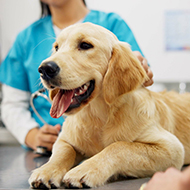Microbial communities develop similar AMR, study finds
Bacteria that co-existed had a higher level of AMR genetic material than isolated bacteria.
A study into anti-microbial resistance (AMR) has explored how bacteria can share AMR mechanisms when they are in the same microbial community.
The research particularly focusses on livestock farming, which has seen a significant increase in the spread of AMR.
Scientists from the University of Nottingham examined how two common bacteria in livestock settings, Escherichia coli and Salmonella enterica, shared genetic material. Both bacteria have high levels of drug resistance, transmissibility to humans, and cause food poisoning.
The investigation saw the team collect 661 E. coli and Salmonella bacteria isolates from chickens and their environments across 10 chicken farms and four abattoirs in China over a two-and-a-half year period.
The researchers conducted a large-scale analysis of the samples, using conventional microbiology DNA sequencing as well as data-mining methods powered by machine learning
The findings demonstrate that different bacteria species that co-existed in the same microbial community could share AMR genetic material. This means that they implement similar anti-microbial resistant mechanisms.
Bacteria that co-existed within the chicken gut, compared to bacteria existing in isolation, had a higher level of AMR-related genetic material and implemented similar resistance and metabolic mechanisms. This could be the result of a stronger co-evolution pathway.
The study is the first where the genomic content of two bacteria has been investigated on such a large scale, using samples from the same animals, at the same time, in real world settings.
The researchers say their findings demonstrate that investigating bacteria species in isolation may not provide a sufficient image of AMR activity in livestock farming. This could lead to an underestimation of the threat to human health.
Dr Tania Dottorini, lead researcher from the University of Nottingham, said: “These species of bacteria can share genetic material both within, and potentially between species, a way in which AMR is spread.
“That is why understanding the extent to which these bacteria within the same environment, and importantly, the same host, can co-evolve and share their genome could help the development and more efficient treatments to fight AMR.”
The full study can be found in the journal Nature Communications.
Image © Shutterstock



 The CMA has invited comments on a draft survey invitation letter, as it continues its investigation into consumer experience.
The CMA has invited comments on a draft survey invitation letter, as it continues its investigation into consumer experience.